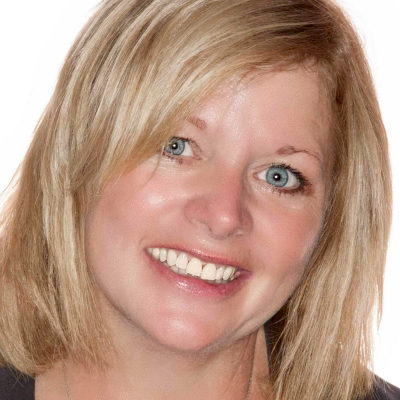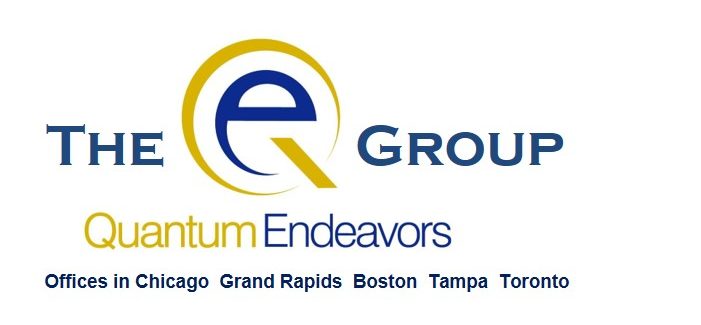
Dr. Relly Nadler: In this encore presentation, we are pleased to bring you Ann Farrell who is the Founder and President of Quantum Endeavors. She’s a professional certified coach and she has worked for 30 years in various leadership roles at Navistar International Corporation, a Fortune 200 company. She is the only woman to rise from an entry level to the top of the house in its 150-year history, of this Fortune 200 company. So you are really getting someone who not only talks about leadership but has actually been a leader and has come up through the organization with all the trials and tribulations.
She combines her years of corporate experience testing what works best in her own career with coaching best practices to create trademark programs and tools that have consistently delivered great results for more than 50 of the Fortune 500 companies, small businesses, but also wildly successful individuals.
She is an executive, business and leadership coach who has made high performance in people in organizations through “revealutionary” leadership. We’ll have her explain what that really means. Her passion for empowering people to fully step into their personal and professional best is at the heart of her coaching. It’s only when we step out of the role and into the real are we able to access the great leader that lies within.
Some of her clients include the Chicago Cubs organization, GE, Navistar where she worked, Allstate Insurance, British Petroleum, Alcoa Corporation, National Speakers Bureau, Player’s Choice; as you can see, many of the top companies, so we are getting somebody that has really been out in the field and is bringing best practices back for us.
Ann, welcome to the call!
Ann Farrell: Thank you Relly. It’s great to be here with you and Cathy.
Dr. Relly Nadler: We are glad that you are here. One of the things that I am excited about is that it sounds like you have really taken a lot of your experiences and put them into developing your own trademark, proprietary programs. You have programs called; For Your Corporate Success, Quantum EQ, Quantum Game Changers – about innovation, The Quantum Start: Successful Onboarding, your SOAR Program, Leaders who are Empowered, Women who are Empowered, Shooting for the Stars, not the Ceiling.
These are all great things and also we want to hear about what “revealutionary” leadership is.
It looks like for a lot of years you were VP of Purchasing & Logistics and led an $8 billion purchasing and logistics organization to breakthrough levels, this is at Navistar. You were also the VP of Product Development Lacrosse Functional Product Development driving a billion dollar program from concept to market for 2800 people. Also the VP of Human Resources and Leadership Development President in Training and led Leadership and Development Cultural Change for more than 5000 people.
You have really got some great experience.
Dr. Cathy Greenberg: Ann, I want to ask you before we get started talking about your career achievements and some of the things that you are doing to help others at Quantum Endeavors, who have been the people in your life along the way who have been most influential in your thinking and who you have become? Ann, I want to ask you before we get started talking about your career achievements and some of the things that you are doing to help others at Quantum Endeavors, who have been the people in your life along the way who have been most influential in your thinking and who you have become?
Ann Farrell: Wow. Great question Cathy. Sometimes people ask me who my role models are and I come up a blank because a role model is somebody that I would have in my life that I aspired to be like, but the truth is, the key influencers in my life were two men who believed in me very, very strongly. First and foremost, my dad. He modeled to me the value of very hard work and achievement and just as powerfully, he modeled that he never had any fun and wasn’t very empathetic or emotionally available.
That had a huge influence on who I am and who I’ve become.
The second fellow was a CEO at Navistar. He had amazing confidence in me and continued to give me assignments that he knew I was ready for long before I knew myself, and yet his leadership style is well-known as primarily fear based and intimidation.
Dr. Relly Nadler: Can you say a little bit more about what you got from then and how that led you to today. It sounds like, especially with your Dad; I have learned some things of how not to be from my dad, and it sounds like on some level that you also got from your Dad.
Ann Farrell: Yeah, Relly, you are right on. I admire my Dad for everything that he is and I learned from that, we were very different. I think the biggest reason that I point to these two people in my life as people who have influenced me is I cared about them very much, they believed in me hugely, but they both actually forced me to take a stand for who I am and what I stand for. There were many occasions both personally with my Dad and professionally because we actually worked together too, as well as with the CEO.
My big stands that I had to take were with or against them. They enabled me to have the skills to do that many times throughout my 30-year corporate career. For a woman working in a totally male-dominated world and one who began as a pleaser, these were the defining moments.
Dr. Cathy Greenberg: Ann, when you were talking about these competencies, you have created a series of tools and techniques and strategies at Quantum. How do you use them currently and what “revealutionary” leadership?
Ann Farrell: Beautifully said, Cathy. The whole drive is, I guess my biggest lesson is that my power is when I am authentically standing in my strength. “Revealutionary” leadership is about enabling leaders to stand in their strengths, identify who they really are—the great leader that lies within, it’s value spaced authentic leadership that lets them really tap into them at their best, their uniqueness and also that fierce resolve that we have when our core values are challenged that really charges us to step up and make the difference that we have the potential to make by playing real verses roles and therefore playing big.
Dr. Relly Nadler: So these are some new languages that you are introducing, I certainly value and do a similar thing. Say a little bit about more about introducing some of these play on words that you have and seeing things differently, from your experience in the organizational world. I guess part of this question is why that, and then why do people need to think and talk differently.
Ann Farrell: Thank you Relly. What I have seen while I was in corporate and with my clients as well, is that way too many leaders are caught up in being who they think their organization or their position wants and requires them to be. We have women who are trying to lead like men, we have introverts trying to lead like ENTJs, and everybody trying to lead like the leaders who seem to always get promoted.
Yet when you try to connect with them one-on-one to find out what is really great about them, what comes up is this duality that who they are at work versus who they are at home is two different people.
Dr. Cathy Greenberg: Ann, you just used some language that some of our audience may, or may not be familiar with. You used the words extrovert verses IMTJs. Do you want to expand on that a little bit?
Ann Farrell: Let me do that, please. The most common profile for leaders in organizations is an ENTJ which is a Myers-Briggs type which extroverted, it’s a strong leadership style that can be designated more command and control than maybe a softer, quiet, more introverted kind of leadership.
Dr. Cathy Greenberg: So “I” stands for introverted, “E” stands for extroverted. “N” stands for intuitive, “S” is more sensing or analytical, “T” is Thinking, “J” would be judging, whereas “F” would be feeling and “P” would be perceiving.
Ann Farrell: Thank you. There’s a great, overwhelming number of ENTJs versus all of those other descriptions that you just laid out there. Much of it shows up in either a strong results orientation versus the softer style which is really where a lot of the emotional intelligence lies and the skills of really being able to have the self-awareness of what is going on with ourselves, what is going on with others, and the ability to motivate them where they stand.
It’s very different from the traditional look of a command and control kind of leadership style.
Dr. Relly Nadler: As we know, we have a lot of this on our show, these are all things that leaders can learn. We are not saying this is a makeover and you have to change, but sometimes getting a little more emphasis on one style and at the same time keeping your strengths.
That may be interesting, Ann, because all of us deal with the Myers Briggs strengths. Say a little more about how you helped someone discover their strengths. I love the visual of what are you going to stand for and going back to your experience of standing up for yourself with key men in your life and I’m sure other people also. How do you help someone identify some of those strengths?
Ann Farrell: Some of the key steps are just simply starting to introduce the concept of core values to the leaders in an organization and taking them through tools physically that help them identify what they are for them. Then letting them mirror those out to what their leadership stand would look like if they authentically stood in those values.
Once that happens, Relly, what you see leaders will start to say things in these exercises like, well, I have a different set of values whether I’m at work or at home. Or, if I were filling this out about the kind of parent I want to be then my values would be like this, but, we are talking about work so then I’m over here.
Helping leaders see that when we split ourselves, there is a duality, and we are really lessening our power.
Listen to the entire interview, above.
Relly

